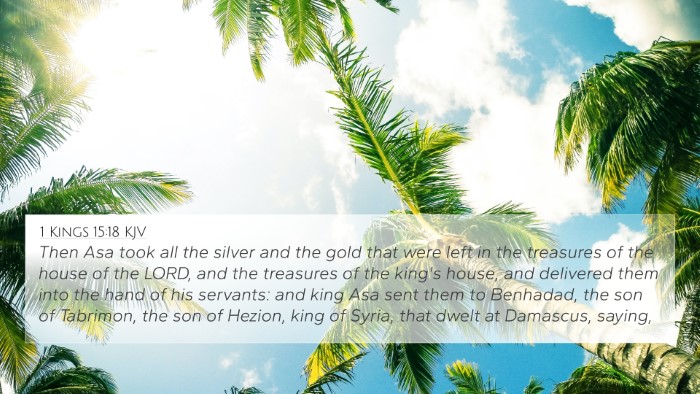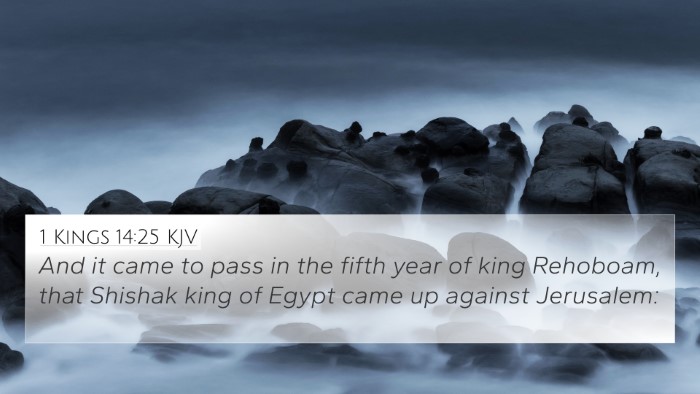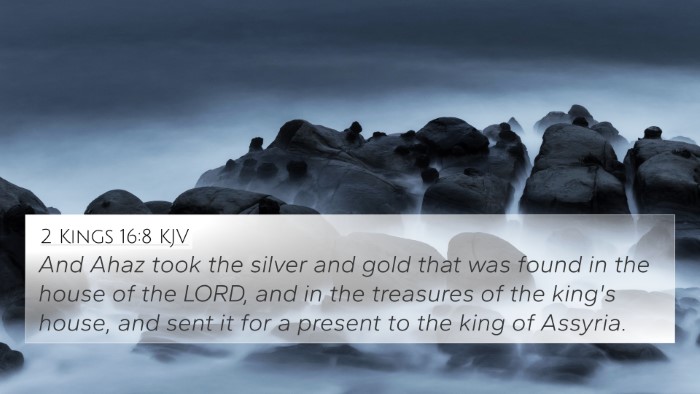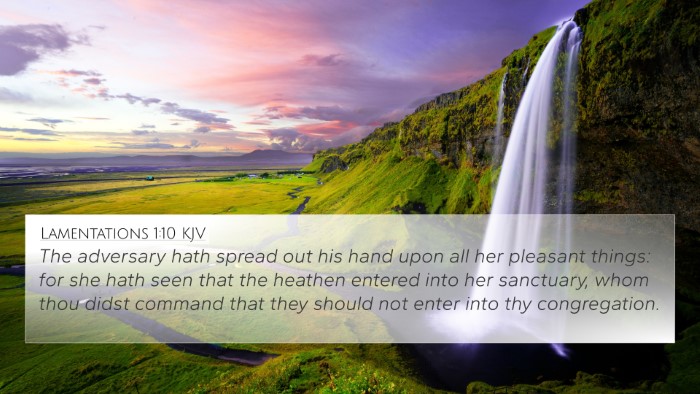Understanding 2 Chronicles 12:9
“So Shishak king of Egypt came up against Jerusalem, and took away the treasures of the house of the Lord, and the treasures of the king's house; he took all: he carried away also the shields of gold which Solomon had made.”
Verse Context and Historical Background
This verse depicts a significant moment in the history of the kingdom of Judah during the reign of King Rehoboam. Shishak, the king of Egypt, invaded Jerusalem, a moment that highlights the consequence of turning away from God. The events surrounding this verse signify the degradation of Judah's spiritual and political strength.
Interpretation Insights from Commentators
-
Matthew Henry:
Henry emphasizes that Shishak's invasion highlights the repercussions of Israel's disobedience to God. The loss of treasures indicates that the blessing of God had departed due to idolatry and infidelity among the people.
-
Albert Barnes:
Barnes notes the significance of the event in the context of prophetic fulfillment. The spoiling of the temple treasures can be linked to divine judgment over the nation’s idolatry, illustrating the loss of God’s protective favor.
-
Adam Clarke:
Clarke's commentary focuses on the moral implications, emphasizing that this incident serves as a warning to future generations about the consequences of turning away from God. Such actions result in loss and degradation of spiritual values.
Bible Cross-References
Understanding this verse is enriched by connecting it with several other scriptures:
- 1 Kings 14:25-26 - Describes Shishak’s plundering, providing a clearer historical context.
- 2 Chronicles 10:1-19 - Offers insight into Rehoboam's poor decision-making and the resulting divide in the kingdom.
- 2 Chronicles 7:19-22 - Highlights the conditional nature of God’s covenant with Israel, tying back to Israel's faithfulness.
- Isaiah 30:1-3 - Warns of seeking help from Egypt instead of trusting God, a theme relevant to Rehoboam’s era.
- Jeremiah 2:18 - Reflects on the folly of turning to foreign alliances rather than relying on God.
- Hosea 5:13 - Illustrates Israel's attempts to seek help from Assyria and Egypt, leading to downfall.
- Matthew 24:2 - Jesus speaks of the destruction of the temple, which can be linked back to its plundering under Shishak’s reign.
Thematic Connections and Analysis
This verse illustrates several crucial themes within the biblical narrative:
- Divine Judgment: The invasion by Shishak illustrates God’s response to the sins of Israel.
- Consequences of Disobedience: The narrative serves as a warning of what happens when a nation deviates from divine guidance.
- Importance of Reliance on God: The failure to trust in God led to a reliance on human alliances, which ultimately failed.
- Historical Context of the Kingdom: The event reflects the political and spiritual turmoil within Israel's history.
Practical Applications
Readers can draw several modern applications from this verse:
- Evaluate Trust: Reflect on what or whom you are trusting in times of trouble, ensuring it aligns with God’s will.
- Beware of Compromise: Just as Rehoboam faced consequences for placating the people through unwise decisions, modern believers should be cautious not to compromise their faith.
- Seek God’s Guidance: Prioritize prayer and seeking God's wisdom in decisions, particularly in times of crisis.
Conclusion
2 Chronicles 12:9 serves as a powerful reminder of the impact of turning away from God. Through the combined insights from various biblical commentaries, the understanding of this passage is enriched, providing a clearer view of the dire consequences that resulted from the disobedience of Israel. By linking this verse with others in the Bible, we discover profound thematic connections that emphasize the importance of faithfulness and reliance on God throughout history.









